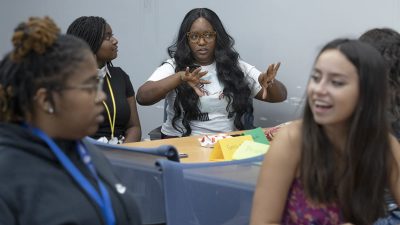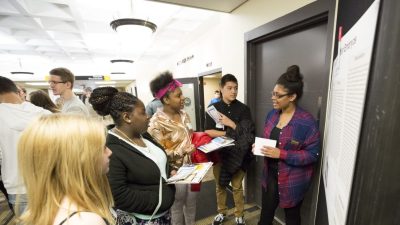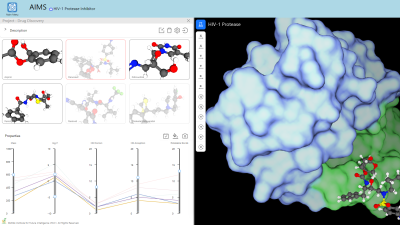Health and Biomedical Science for a Diverse Community (Phase II)
Project Website(s)
-
Project Description
A. To increase interest and achievement in biomedical science among 4th and 5th graders from underrepresented minorities; B. To enable 4th and 5th grade under-represented minority students to envision themselves as future healthcare providers and biomedical science researchers; C. To promote family health by providing teachers students and families with strategies for preventing diseases to which minorities are particularly prone. Approaches include: (1) Development of a health and biomedical science curriculum for 4th and 5th grade: eight five-lesson instructional units four units for 4th grade and four for 5th. Students learn scientific concepts and practice investigative skills while studying diseases and health conditions that predominantly affect minorities. (2) Workshops for teachers at the Hall of Health Museum CHORI and school sites to familiarize teachers with the curriculum introduce them to cutting-edge biomedical research and help them to incorporate biomedical science across the curriculum. (3) Family Science Nights and Science Festivals to increase families- knowledge of health conditions and biomedical science and to enable students and parents to learn together. (4) Providing students with high school college and professional role models from diverse ethnic groups. (5) Interactive exhibit on social and genetic factors in health.
-
Abstract
Children’s Hospital Oakland Research Institute (CHORI) in collaboration with the Hall of Health a hands-on health museum proposes a two year Phase II SEPA project entitled Health and Biomedical Science for a Diverse Community. The purpose of this project is to disseminate (1) “Your Genes and Your Choices” a unique interactive exhibit on social and genetic factors in health and (2) a 4th and 5th grade health and biomedical science curriculum. The exhibit and curriculum were developed during Phase I. “Your Genes and Your Choices “which has eight interactive stations and has been piloted at the Hall of Health is designed for small science museums and health education centers. It will travel to four venues nationwide during Phase II and remain available to other venues after the grant ends. The innovative activity based curriculum consists of eight instructional units that introduce students to scientific concepts and investigation in the context of the study of diseases and health conditions that disproportionately affect minority populations. The topics are: Fourth Grade: Unit 1: Nutrition: Balance and Imbalance (Obesity); Unit 2. Traumatic Brain Injuries; Unit 3. Infectious Diseases and Immunity; Unit 4. Environmental Toxics: Poisoning Prevention. Fifth Grade: Unit 1. Nutrition: Diabetes; Unit 2. Asthma and Lung Disease; Unit 3. Heart Disease; and Unit 4. Sickle Cell Anemia and Genetics. Each unit consists of five one hour lessons. The curriculum was piloted during Phase I both in the classroom and in an after school science club at two elementary schools serving predominantly minority children in Oakland California. Now we propose to: (1) disseminate the curriculum via science clubs to ten elementary schools in Oakland and Berkeley; (2) offer a series of educator workshops to enhance the skills of teachers and after school personnel to teach scientific investigation and to incorporate the latest findings in biomedical science across the curriculum; and 3) hold family science festivals at each participating school to introduce parents to the topics of the science clubs. The festivals will include hands-on activities talks by CHORI researchers and focused discussions with healthcare providers on issues relating to minority health. This project involves clinical as well as basic science investigators healthcare providers teachers and health educators high school and college students and faculty from San Francisco State University and the University of California at Berkeley. The ultimate goals are to make science interesting and relevant to children who come from ethnically diverse low income environments; to help them meet state and national objectives for learning in health science and scientific inquiry; to help them and their parents understand the relationship between science and health; and to foster their interest in science so that they may consider future careers related to biomedical science. All project activities will be assessed through formative and summative evaluation. The science clubs will remain in place at the ten participating schools after Phase II funding ends and the curriculum and evaluation tools will be posted on the internet and thereby available to others.
-
Dissemination Strategies
1. Posting lessons on the Internet (expected completion by June 2007). 2. Now writing Phase II SEPA proposal to provide for production of curriculum kits for dissemination to all of the elementary schools in the Oakland Unified School District California and training parents and teachers to use them. 3. Phase II SEPA proposal to include workshops for teachers and parents from other districts. 4. Phase II SEPA proposal to include traveling version of exhibit.
-
Resources for Sharing
1. Lesson plans for eight instructional units for 4th and 5th grade (topics listed above). 2. Evaluation tools.
Project Audience
Ethnically diverse 4th and 5th grade students and their teachers and parents
Subjects Addressed
(1) obesity and nutrition; (2) diabetes and nutrition digestive system; (3) traumatic brain injuries nervous system; (4) infectious diseases; (5) environmental toxics and poisoning prevention; (6) asthma lung disease respiratory system; (7) genetics and sickle cell anemia; (8) heart disease circulatory system.






